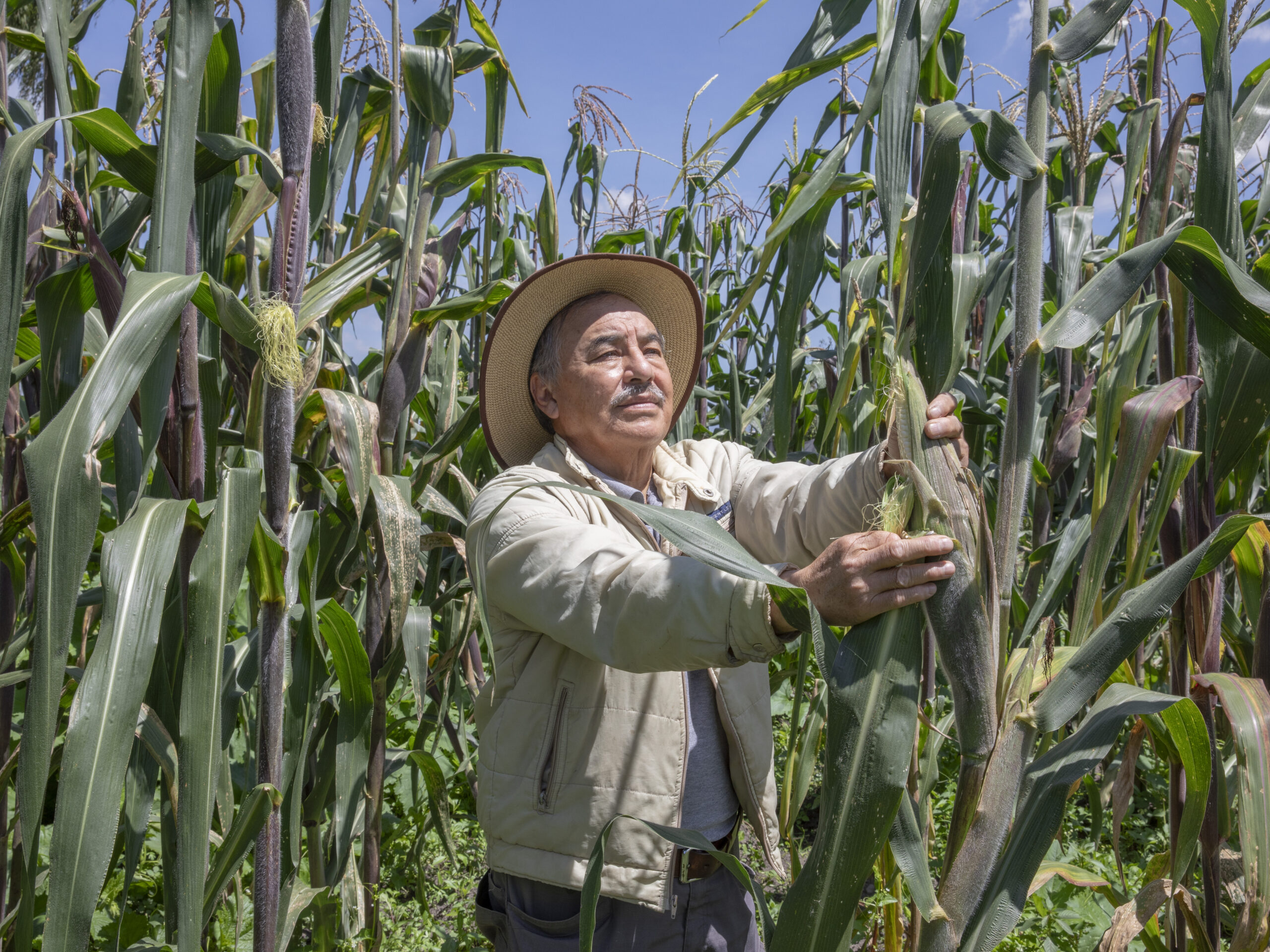The Abridged version:
- Many Latin American participants will stay away from Terra Madre Americas in Sacramento.
- They fear more aggressive immigration enforcement in the United States.
- Terra Madre Americas organizers say international participants will nonetheless have a huge impact on the event.
A significant number of Latin American farmers, chefs and visitors are expected to stay away from Terra Madre Americas next week, reshaping Sacramento’s signature international food expo.
The reason? More aggressive immigration policies in the United States.
“They are afraid. There is a level of fear that is higher than ever. A good number of people from different places told us, ‘we don’t want to go,’” said Paolo Di Croce, the general director of Slow Food International, which is organizing the event.
Terra Madre Americas aims to be Sacramento’s grandest food festival of the year, and perhaps its biggest culinary moment ever. A free-to-attend celebration of food, drinks and agriculture from across North and South America from Sept. 26-28, the festival is meant to connect creators from Alaska to Chile, with tastes and talks for local attendees.
Based in and around the SAFE Credit Union Convention Center in downtown Sacramento, Terra Madre Americas will be the Western version of Terra Madre Salone Del Gusto, an every-other-year celebration since 2004 in Turin, Italy. Celebrity chefs such as Alice Waters, Jeremiah Tower and three-time James Beard Award winner Sean Sherman will be on hand for cooking demonstrations and pop-up dinners, with complimentary sips and bites and free live music throughout the weekend.
Festival aims to celebrate Latin America
The Italian version of Terra Madre draws about 300,000 guests and 700 vendors from across 120 countries around the world. But it’s a long trek from Latin America, and some nations’ specialties can get lost within that vast marketplace.
Terra Madre Americas was designed in part to spotlight those foods and the people behind them, said Visit Sacramento President and CEO Mike Testa said. The city’s tourism organization started talking to Slow Food International about bringing Terra Madre Americas to Sacramento in 2019.
After weathering the COVID-19 pandemic and testing out a quickly-assembled 2024 dry run, this year’s Terra Madre Americas was supposed to be the big payoff. Then came workplace raids by masked Immigration and Customs Enforcement Agents, alleged deportations of U.S. citizens and 181 immigration-specific executive actions in President Donald Trump’s first 100 days in office.
Now trepidation has crept in for some would-be Terra Madre America attendees – not just chefs and farmers, but tourists too, Di Croce said — and the festival will be worse for it.
“It cuts out some of the content that we want from those other countries in that part of the world. They’re not as well-represented in the European version, and because of the proximity to the U.S., we want them represented here,” Testa said.
Deportation flight sparked concern
Most people aren’t staying away because of a specific U.S. policy, Di Croce said. But a chaotic deportation flight earlier this year soured at least one delegation on Terra Madre Americas.
In January, a planeload of 88 Brazilian deportees took off from Louisiana and landed in the sweltering heat of the Amazon rainforest, where it sat on the tarmac for hours without air conditioning.
The passengers, most of whom were handcuffed and shackled, became restless. They began shouting and shoving, children crying and adults fainting, as immigration agents blocked the exits. The deportees were finally released when Brazilian federal police arrived on the scene, and President Luiz Inácio Lula da Silva ordered a Brazilian Air Force plane to escort them on to their final destination “with dignity and safety.”
Shortly thereafter, Slow Food International Latin America and Caribbean director Valentina Bianco received a call from a Brazilian state’s Slow Food chapter, she would not identify. The state was pulling out of Terra Madre Americas. As the chapter representative told Bianco, who is based in Brazil herself, they couldn’t in good conscience send people to the United States after that flight.
Outside of Brazil, people from Mexico, Colombia and Peru have been particularly wary, Di Croce said. To combat those fears, Slow Food delegates will travel in groups to the U.S., making sure no one attempts to cross the border alone and each unit has confident English speakers, Bianco said.
Visa process also poses challenge
Visas have been another wrinkle. Slow Food International has prioritized sending Latin Americans who already have U.S. visas, because new applicants have been scheduled for embassy appointments a year out or simply had their applications ignored, Di Croce said.
It’s unlikely to get easier in future years. A new “visa integrity fee” will cost at least $250 for all visitors hailing from Latin American countries except Chile when effective in October.
“We’re communicating with a lot of those embassies to try to make getting visas easier, to try to make them feel comfortable with coming. But the reality is, I can’t guarantee anybody’s safety,” Testa said. “We’re trying to do it the proper way, making sure that people are getting visas, that they’re documented, that they’re coming through the right way and just encouraging them to do that. But some of that – most of that – is not up to us.”
Not everyone is staying away
Despite the challenges, organizers expect about 100 Slow Food delegates from 15 Latin American countries, Bianco said.
They’ll anchor a section dedicated to cacao, an exhibit Terra Madre Salone Del Gusto has never had, and give talks about sustainable fishing, indigenous beverages and more at the festival’s Agroecology Hub. The Italian festival often struggles to connect Global North and South despite its best intentions, Bianco said, but Latin Americans who come will stand next to U.S. farmers and chefs at Terra Madre Americas.
Other parts of Terra Madre will simply focus more on more local foods, chefs and farmers. All 109 federally-recognized Native American tribes in California will be represented throughout the weekend, Testa said. The Terra Madre Americas Marketplace, a collection of more than 75 free tastes from around the globe with take-home quantities available for purchase, will lean toward California products such as olive oil and peaches, though Testa said it’ll go well beyond a typical farmers market spread.
A handful of Slow Food International’s institutional donors have refused to sponsor a conference in the U.S., though local backers such as Wilton Rancheria and UC Davis Health have stepped in. Some Slow Food supporters have called for a boycott, Di Croce said. To organizers, though, it’s never been more important to showcase global food practices.
“Being in California in this moment is very important for us to give our message to citizens, to visitors, to strengthen these relationships among civil society organizations that are still committed in the United States within this political context. We need to be together … now more than ever,” Bianco said. “It’s very important to try to build bridges that go over the political borders.”
Not the first immigration issue for Terra Madre
It’s not the first immigration hurdle Slow Food has had to address. Italian authorities were concerned people might overstay their visas when they came for the first Terra Madre Salone Del Gusto in 2004.
But all foreign visitors returned home to their farms, restaurants and communities, Di Croce said. They weren’t in Turin to flee, but to share what they had back home.
Perhaps the U.S. will see these visitors in the same light, Di Croce said – if not this year, then when Terra Madre Americas returns to downtown Sacramento in 2027. Getting Latin Americans on board will be a different challenge.
“For us historically, especially if you are of a certain age, the United States has always been the country of opportunity … (where) if you are good, you can have success,” Di Croce said. “Today, it’s the opposite. People are afraid to go there. From the cultural perspective, it’s so sad.”

Benjy Egel is the senior food editor at Abridged. Born and raised in the Sacramento region, he has covered its local restaurants and bars since 2018. He also writes and edits Abridged’s weekly food and drink newsletter, City of Treats.






